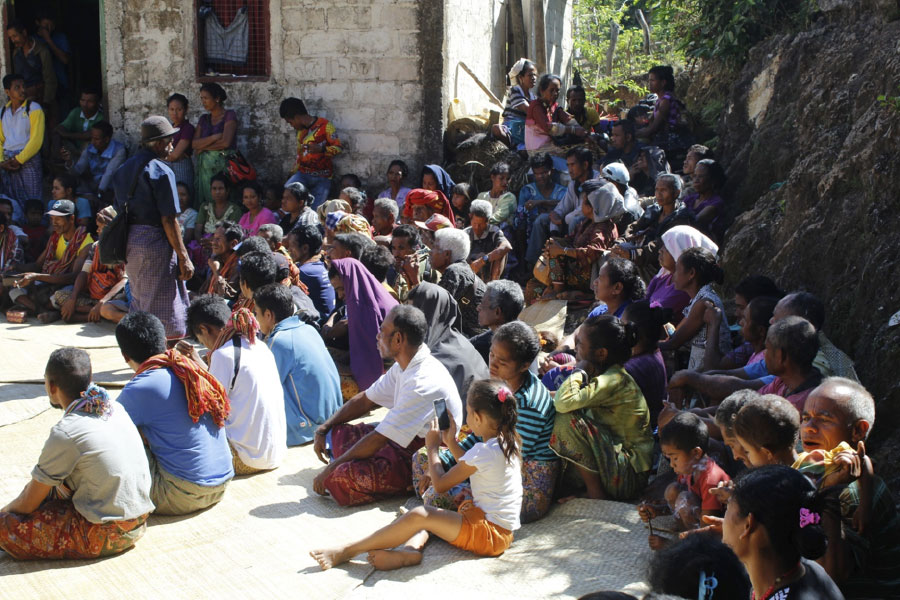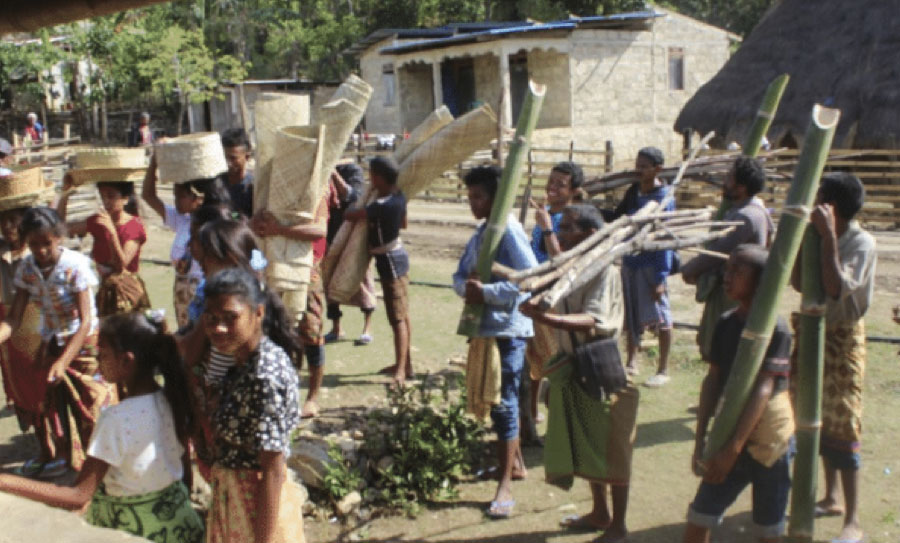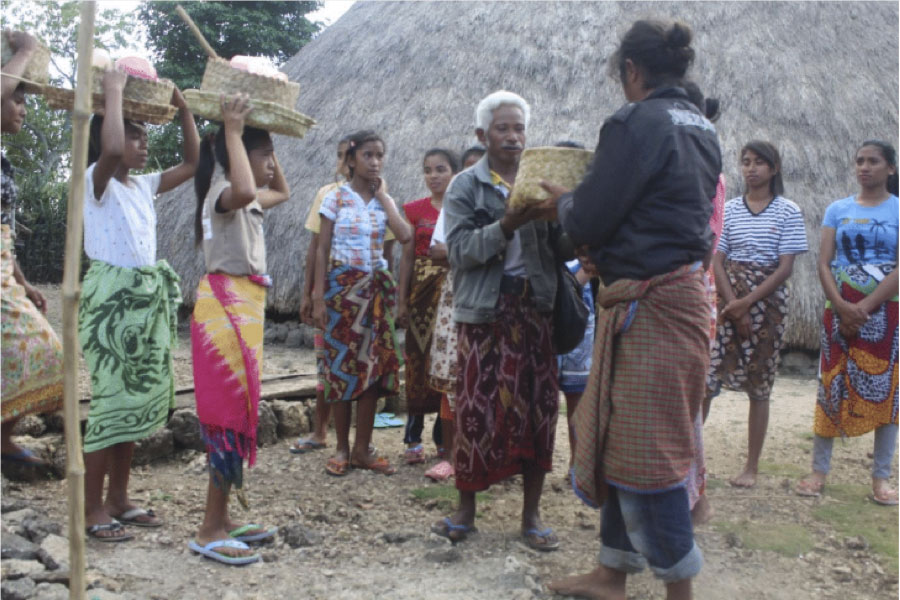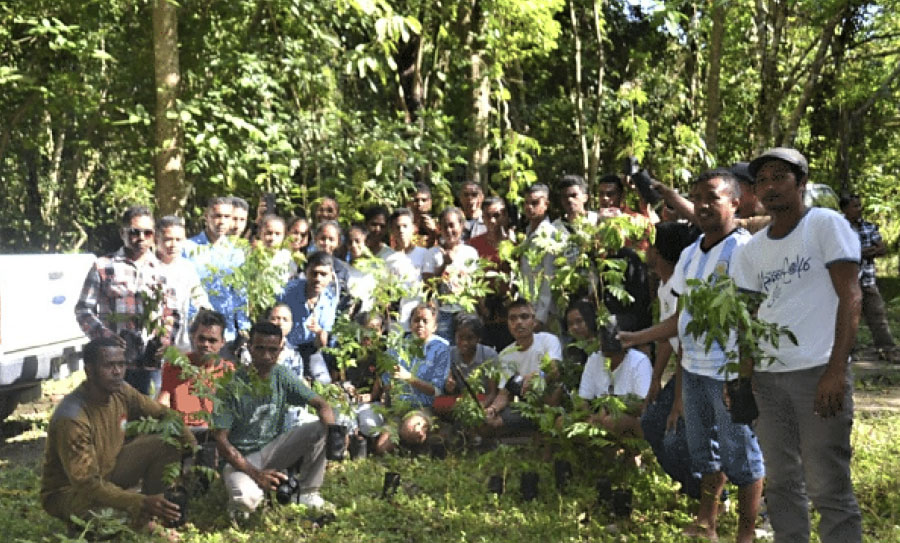The opening ceremony had village chiefs, local authorities, forestry officers, and community leaders in attendance. The highest clan “Rai Oan” or Son of the Land led the ritual, assisted by “Uma Dato” or House of the Leader who implements the customary law, and “Lia Na’in” or Owner of the Words who, as a judicial body, maintains justice.
Mr. Filomino, the sub-district administrator was accompanied by elders and chief of villages in receiving a sacred hammer with which he rang the sacred bell to signify the opening of the ritual at the sacred place, the center of “sadanlulik.” This is open only to the Rai Oan Clan during the ritual and taking video and photos is not allowed.
After the ritual, the community leaders signed the Tara Bandu regulations to legalize these. It was the community’s first time to discuss the first written community regulations before adoption. The Makle’at or Forest man nominated six people to represent each village. He is tasked to look after the needs of the community and to report any violation to the Lia Na’in Clan elders who lead the process of investigation and mete out penalty or sanction to the violator.

Tara Bandu regulations which include the list of prohibited materials are distributed to each clan leader, with a parcel of meat and rice. The hanging of lists at public places is a sign that prohibition started on the day of the ritual. Makle’at informs each clan leader when to publicly announce the end of the prohibition and Makle’at himself shall remove the hangings at public places. This will be the harvest season when the community can freely take anything from the forest.

The Tara Bandu is waning, but with this project, the practice was revived to remind the community that it is integral to the control and management of their resources. Tara Bandu reinforces and strengthens state laws that prevent degradation and encourages reforestation and sustainability. Additionally, it defines roles, responsibilities and ownership of the community for their own benefits.
The Tara Bandu as a practice and traditional knowledge is transmitted to the younger generation for continuity. This intergenerational transfer of knowledge is an educational experience for the entire community and awareness raising for the youth and the general public. The active participation of the communities to secure and sustainably manage their resources was enhanced.

The next generation’s voices are to be heard, such as Armando’s who said, “As the young generation, we are now aware that we do have our own traditions that can be used to manage our resources without intervention from outsiders or government. The presence of state regulation is just to strengthen our tradition and government officials should recognize and involve existing traditional governance system for the same purpose.” The Forestry officer acknowledged the clan’s role when he said that “…every clan has a clear role and responsibility in carrying out and ensuring implementation of Tara Bandu regulation. This indicates the existence of traditional government system and sense of ownership for their own benefits.” The elders’ views were expressed by Raimundo who stated that, “We have an obligation to share our culture and practices to the young generation although most young people are not really keen to know such traditions. We have the video documentation as an alternative to share these to them.”
The rains, distance, and bad road condition may have prevented other communities from attending, but they know they have the Tara Bandu tradition to hold onto for the protection of their resources.

The Tara Bandu ceremony as the focal activity of the Documentation and Preservation of Indigenous Peoples’ Culture and Practices Project was successfully implemented by Centro Juventud Covalima in Fatumea sub-district, Covalima in Timor Leste. A media team produced a video documentary which was one output of the project. The project was implemented on February 11, 2017 with the support of PAWANKA Fund.
